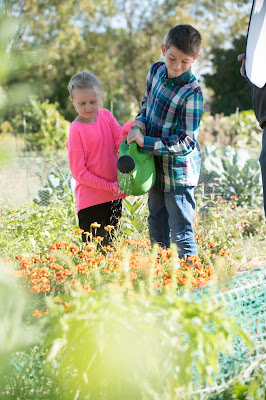As youth development professionals, we are asked to guide youth as they change and grow into adults. We are called to be agents of change, to take what is and make it into what could be. As change agents, we not only guide youth through changes, we work with individuals, groups, and communities to improve the quality of youth’s lives. In youth development, some of the changes we face are related to finding youth workers to staff programs, getting kids back involved in programs after COVID, and recruiting volunteers to work with youth programs.
In a Journal of Extension article, Agents of Change: Thoughts on Youth Development (joe.org), Karen Teague discusses both organizational and personal change. As I think about personal change and my readiness, I know that it has been essential to continue to seek new ways of working, learn from others, and re-evaluate work to grow and develop. Senge states, "Personal mastery is the discipline of continually clarifying and deepening our personal vision, of focusing our energies, of developing patience, and of seeing reality objectively." Personal mastery involves personal growth and learning. "It means approaching one's life as a creative work, living life from a creative as opposed to a reactive viewpoint."
Early in my career as a youth development professional, I was asked to develop a personal leadership vision. As I thought about my vision and the various aspects of my life at that point, I chose a blooming plant to symbolize my personal vision. A blooming plant needs good soil, sun, water and fertilizer to grow and develop. It also needs someone tending to it. But the blooming plant will probably not bloom all of the time. The plant may need to be repotted or pruned back. The blooming plant will bloom again, but it takes changes for it to do so. I may need changes to help me clarify and deepen my ability to be effective as a youth development professional.
How can we become more change oriented? Change involves taking risks, admitting that the current situation could be better, and having an idea and pathway to make those changes. What changes have you made in your youth development organization? Were they all beneficial? What did you learn from the changes? How can we work with youth to help them be ready for change?
In order to work with youth to become change agents, we must also look at our own readiness for change. Are we leading by example and showing that we are personally ready for changes? In the upcoming weeks, when some of the changes occur in my life, I will think about my personal leadership vision and be ready to learn and grow, just like a blooming plant.
You are welcome to comment on this blog post. We encourage civil discourse, including spirited disagreement. We will delete comments that contain profanity, pornography or hate speech--any remarks that attack or demean people because of their sex, race, ethnic group, etc.--as well as spam.

Nancy - you've made me reflect on my career and all the changes that have occurred. I believe sometimes I was ready for change other times I maybe wasn't. When I wasn't, I took the time to grieve and reflect. I have learned to embrace change with a positive attitude and decide how I can become a better person because of it. I hope that I have been a role model for the youth, volunteers and staff that I have worked with over the years,
ReplyDeleteSuch good questions, thanks for inspiring some reflection for me too. My first professional career was to build a brand new office and related programming. We were constantly seeking out grant funds for new ideas, and developing partnerships with other universities, university departments, and community organizations. Change was constant and exciting, and I was part of a team that was all new too. I tried to bring that same change-minded orientation to my next role and found it really challenging to be part of a culture that was more change averse.
ReplyDeleteAs I've gained more experience in systems, I've recognized that change can be challenging because we wrap ourselves around things we love and its hard to see that what is working for us might not be working for others, might not be working as good as it could be, or might not be working for where we want to go. I find myself being more protective of things that have become "mine", but I'm hopeful I can also embrace that change can often be good.
I have learned quite a bit about working with youth through change, and I have a lot to learn yet. For example, sometimes I've recognized a need for a change that they can't quite grasp - not because of their intelligence, but because they haven't had access to the bigger picture. For example, they don't always see who isn't participating because they are enjoying participating so much. I try to keep this same thinking in mind when a change is made that impacts me but is out of my control - what context don't I have that the decision makers around me do?
As another example, sometimes youth want to make changes immediately and don't recognize the impact those changes may have on other things outside of their experience. I think its part of our responsibility to help them learn how and where things are interconnected, and to be honest with them. Many of the youth I work with are involved for just a year or two, so I also try to show them the long-game -- what changes were made before them that led to where we are, and what changes are they laying the foundation for building on in the future.